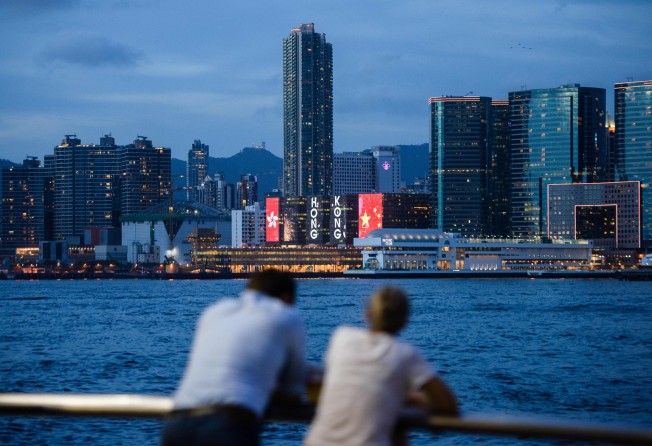Private equity, venture capital executives expect salary increases despite US-China trade war, uncertain economic outlook
- Only 1 per cent of professionals expect a salary cut in the next 12 months, according to Heidrick & Struggles survey
- Hiring remains robust despite concerns about ‘rougher seas’ for the industry, search firm and consulting firm says

Nearly two-thirds of private equity and venture capital executives in Asia expect to receive salary increases in the next 12 months despite potential “rougher seas” in the industry because of the US-China trade war and a slowing global economy, according to a new survey by Heidrick & Struggles.
Only 1 per cent of those surveyed in the region expect to see pay cuts in the coming year, according to the executive search and consulting firm.
Hiring also remains robust by private equity and venture capital firms in Asia-Pacific, and there is increasing demand for investment professionals by new funds, as well as pensions, sovereign wealth funds and family offices, Heidrick & Struggles said.
“You continue to have new pools of capital come in. You used to have pension funds and big pools of capital in the US and Europe that were investing in fund of funds type strategies or doing it from afar,” Michael Di Cicco, head of investment management, Asia and the Middle East, at Heidrick & Struggles, said. “Those that are of scale are building out offices here – whether that’s a pension fund form North America or something in Asia. You just have more money that needs to be invested.”
Di Cicco said the industry is moving to more specialisation, whether that is industry or local focus. The industry also is increasing its hiring on the ground in Southeast Asia, but Hong Kong continues to have a strong centre of gravity for investing in the region, particularly in mainland China.
“We are seeing the origination side of the investment get closer and closer to the deals,” Di Cicco said. “You’ve seen a number of funds open offices in Indonesia, in Vietnam. You’ve seen a migration of the origination side of private equity that was in Hong Kong shift to China and then shift into different cities in China, so that continues to get closer and closer to the deal.”
The survey, conducted in the second quarter of this year, included responses from 215 participants and covered compensation data for the last three years.
The findings come after “a very good year” for private equity and venture capital investment in Asia-Pacific, with US$169 billion of deals, according to Heidrick & Struggles. The aggregate transaction value was down 5 per cent from US$178 billion in the prior year, but more than double the US$75 billion in 2014, the firm said.
But, a decline in fundraising last year, combined with geopolitical tensions and slowing economic activity in China and the United States, has caused some concern in the industry.
Consulting firm Bain & Company said earlier this year that US-China trade tensions had increased the risk of macroeconomic disruption in mainland China and across the region; deal prices remained high; and large funds with strong track records were dominating activity in the region at the expense of smaller firms.
“These economic and market trends could slow the revenue growth and multiple expansion that propelled Asia-Pacific [private equity] returns in recent years,” Bain & Company partners Kiki Yang, Usman Akhtar and Johanne Dessard, said a March report. “In past recessions, the PE market has outperformed other asset classes. But if recession strikes, vulnerable and less differentiated funds are likely to disproportionately bear the brunt of the downturn. In other words, the party could end abruptly in 2019 for some investors.”
McKinsey & Company said that private market fundraising fell by 27 per cent to US$103 billion in Asia in 2018, with fundraising by Asia-based managers nearly halving last year. Fundraising in Asia had increased by an average of 7 per cent a year since 2013, according to the consulting firm.
“The retrenchment by Asia-based managers appears to reflect a couple factors, starting with dry powder, which reached a new high of $376 million in [first half of] 2018 on the back of strong historical fundraising since 2014,” McKinsey said in a February report. “Managers may have eased their allocations this year to allow funds to work through currently committed capital. And in China in particular, tightened regulations have also affected fundraising.”
The challenging outlook for private equity in the region also comes as other parts of the financial sector, particularly banks, have cut jobs as an uncertain economic outlook and trade tensions have weighed on investor and business sentiment, even though Asia-Pacific is still viewed as a growth region by many firms.
Despite the optimism about compensation, the Heidrick & Struggles survey found that salaries and bonuses in private equity and venture capital increased at a slower pace in 2019.
Forty-two per cent of respondents said their base salary rose in 2019, lower than the 45 per cent who said their base pay increased last year. Of those surveyed, 45 per cent said they received higher bonuses this year, compared with 59 per cent in 2018.
“Private equity is a long-term business. This is the part of the world that is growing,” Di Cicco, the Heidrick & Struggles managing partner said. “Populations are growing. Income is growing. Middle classes are growing. There’s a need for capital. All of that is continuing to fuel the demand for private equity. The funds are long-term focused. These are exits that take five, seven or even a longer number of years.”